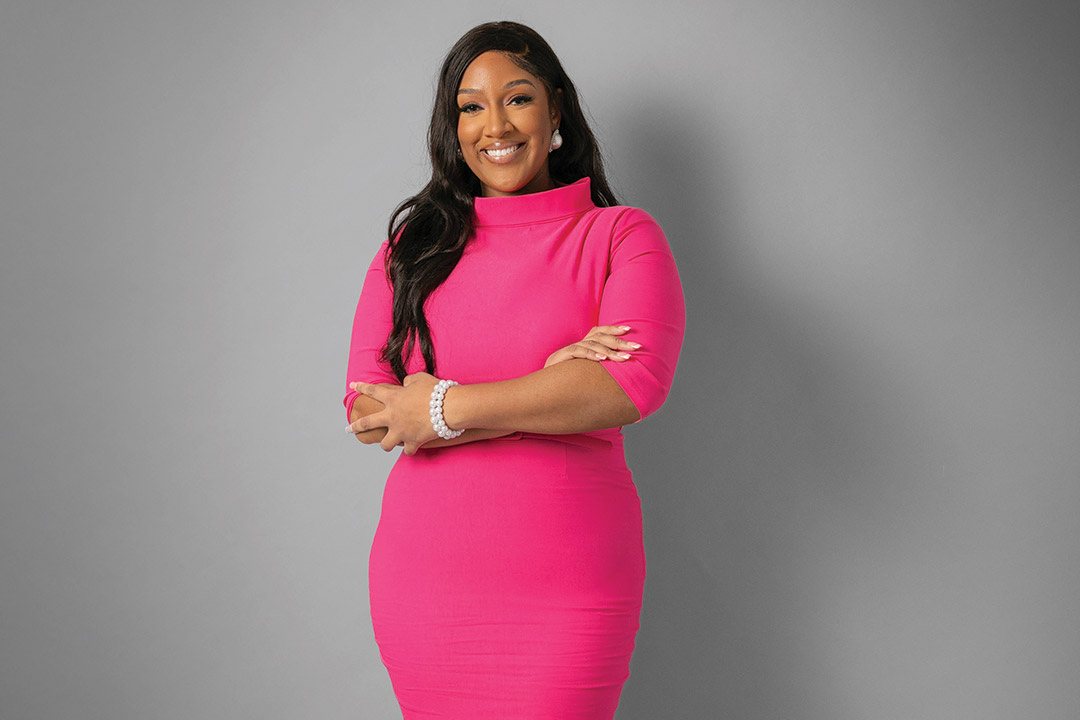Looking to land your first job? RIT grad Jeffrey Culver '82 offers winning advice.
Contacts, competencies, creativity, and your CV—focus on "The Four Cs" for job search success. Plus, get tips for how to rock your interview.
by Jeffrey Culver '82

Finding your first job out of college can be challenging, and you're going to have to work at it, but this is the first rung in a long and likely productive professional career. Building your career is a series of building blocks and every step up will be in a positive direction. Be patient and understand that where you want to be will likely take some time. It won't happen overnight.
Just as the jewelry industry urges engagement ring buyers to consider the “Four C’s” (cut, color, clarity, and carat), here are four C’s to conduct your job search.
Four Cs of Job Search Success
Contacts:
The days of going it alone in searching for a job are long past, if they ever existed at all. Your best chance of landing a role in your chosen fields rests with your ability to tap into networks of people who can tell you about positions that you might be suited for, and ideally, can make a few calls to make sure your application breaks through the crowd for real consideration. Develop your network of peers from school and external activities such as sports, Greek life, and other areas of shared interest: you’re all on the same journey—running, biking, swimming, theatre clubs and other external activities that you can tap into to consult and collaborate with. You’re all on the same journey together.
But, networking shouldn’t stop with your peer group. You can also:
- Identify alumni from your alma mater to engage with to discuss the job market and your professional aspirations.
- Find out about RIT on-campus job information sessions and similar alumni events around the country. If there is one in your area of interest, go.
- Use LinkedIn to grow your network, stay abreast of opportunities, and get a good sense of and what the job market looks like.
- Connect with RIT’s Career Services. Over the last 20 years, most universities have grown much more proactive and professional.
Competencies:
Even as you begin to develop knowledge in your chosen career field, don’t neglect the basic job skills common to the vast majority of professional work environments. Leverage free online training and first-hand experience to ensure you’re ready to confidently handle not just the basics of surviving the modern office (Word, Excel, PowerPoint) but also those skills that seem intuitive to your generational peers.
Beyond that, finding the confidence to carry yourself professionally and proactively—even when you’re far from an “expert” in any given work environment—can make a huge difference not just in hiring decisions but in your early success on the job. Now is also the time to scrub your writing of the twin, but opposite, hazards of wordy “academic-ese” and too-casual overfamiliarity and ensure you’re able to communicate clearly, concisely, and in a culturally appropriate manner for the workplace audience.
Finally, in our increasingly multicultural workforce and globalized business environment, basic proficiency in a commonly spoken second (or even a third) language could make the difference in landing you your dream job, irrespective of your field.
Creativity:
Statistically, you are likely to change not just your job but also your career multiple times over the next few decades. Even as you have your heart set on a role in a certain field, don’t discount opportunities in adjacent fields that you may not have fully considered as a student. Consider stepping outside your comfort zone to try a role outside your specialty. You might end up loving it, and even if you don’t, you’ll gain valuable experience to later apply to another field.
Meanwhile, pursue internships and co-op opportunities as a student. The experience will be invaluable, as will be the contacts you make along the way. If you can afford an unpaid internship, consider it. This will open even more doors for you and will pay for itself in the long run.
If you’re unable to immediately land an internship in your chosen field, consider volunteering with an organization that will allow you to develop and showcase your skills. It’s a chance to do some good, and looks great on your resume.
Be creative in choosing search terms, as you scan the internet for possibilities. LinkedIn, Zip Recruiter, Indeed, and many other sites are as much a resource than any given company’s own jobs page, and may point you in unexpected directions. Even traditional employment search publications like the Federal Jobs Digest are now exclusively online, so open your laptop and get to work. You'll find a match that works for you as you begin your professional journey.
CV (and resume):
What’s the difference? Resumes are generally shorter (1-2 pages) including a brief summary of work experience, education and references. CVs are generally more detailed (2+ pages) with more detailed content including an executive summary describing professional experience and qualifications. A resume will often work well for entry-level jobs, but begin working on your CV in case you identify an opportunity where a more detailed accounting of your experience and accomplishments is needed.
As you develop your CV and resume, remember that employers are increasingly using AI to screen application packages for keywords to ensure an applicant is worthy of further consideration. This means slightly (or more than slightly) adjusting your resume—each and every time—to incorporate words and phrases from the job announcement to let the employer know you’re a match for the role being recruited. The best time to draft your resume and CV was yesterday; the second-best time is right now.
Interview Preparation
With the Four C’s in mind, you’ll soon be heading for interviews. While these can be intimidating, remember that "no interview is a bad interview." You will learn something from every experience even if you don't land that job.
Be ready with your elevator pitch: no more than 30-60 seconds to explain who you are and why you’re the right candidate for this job. Be ready to share stories of how you’ve overcome a challenge, worked well with a team, or leveraged your creativity to solve a thorny problem. Be specific, and if there are quantifiable results associated with your success, share them. If asked to share a weakness or story of failure, remember to frame it in terms of your long-term growth and lessons learned.
Above all, do your homework before any interview. Educate yourself about the company for which you are applying because you will be asked. They’re not just asking why you want this job in the general sense, they’re asking if you’re a fit to work with them. Knowing the company’s mission, vision, and culture will help you answer that question.
Interview Loops
Familiarize yourself with the concept of “interview loops,” as many companies are moving toward this model. What is an interview loop? It is an in-depth evaluation process that includes multiple interviews with diverse individuals from a company along with additional testing and portfolio analysis.
Essentially, it is a collective view to see how you may fit into an organization as a whole. How does this differ from a standard interview? The latter usually involves one interviewer focusing on short term goal setting and solely assessing qualifications required for that position. Loops allow organizations to get an interdisciplinary overview.
When answering questions, turn to the questioner, make eye contact (or “camera contact” for virtual interviews) and respond as directly and succinctly as possible. Avoid rambling answers because that tells the questioner that you're struggling with the response. If you’ve gone longer than 2-3 minutes to answer all but the most detailed questions, you might be going a bit long.
Don't hesitate to sell yourself but don't overdo it because there is a difference between confidence and cockiness. You need demonstrate why you're a good fit for the job and how you will help your teammates and supervisors overcome the challenges they face. Don't be afraid to make mistakes, because you will, just as we all did.
If you find out that you were not selected, don't hesitate to ask for an outbrief with an HR rep or other responsible party and ask for feedback on your interview. That's how to improve your performance.
Grad School or Law School?
Even as you brush up your resume and prepare for interviews, you might be considering graduate school or law school. Don't just default to further education just because you think you're out of options or because you don't think you're ready to enter the job market.
If you have a goal in mind for a graduate degree to advance your career pursuits, then by all means, go for it. If you want to practice law in the future, then take the LSAT and begin your law school search. But don’t sign yourself up for $70k+ per year of student debt just as a delaying tactic, because you're wasting your time and money.
The job market that I’m most familiar with—Washington, DC — is full of workers with graduate and law degrees that they've never utilized. Nearly unanimously, the younger staff who worked for me over the years stated, “work for a couple of years, figure out what interests you have or direction you want to move in, and proceed from there.” Whether it’s grad school, law school or no further schooling — make it relevant to you.
Remember: “Everyone has their own path. Find yours.”
About the Author
Jeffrey Culver is a security executive with 37 years of experience in government and international organizations. He served as the World Bank Group's (WBG) Chief Security Officer from 2011 to 2022 and directed a team of 150 professionals to advance and maintain security operations for the conduct of WBG business and development efforts worldwide. Jeffrey also advised the WBG Senior Leadership Team on security management for the safety of more than 20,000 WBG staff in Washington, DC and international offices.
Prior to joining WBG in 2011, Jeffrey served in the U.S. Department of State Bureau of Diplomatic Security as Principal Deputy Assistant Secretary (PDAS) / Minister Counselor from 2009-2011. He worked jointly with the U.S. Secretary of State and embassy officials to forward security initiatives for the sustainment of U.S government operations in 194 countries and manage reciprocity and immunity issues for foreign diplomats in the United States.
Jeffrey earned a bachelor's degree in Criminal Justice in 1982 from the Rochester Institute of Technology.





